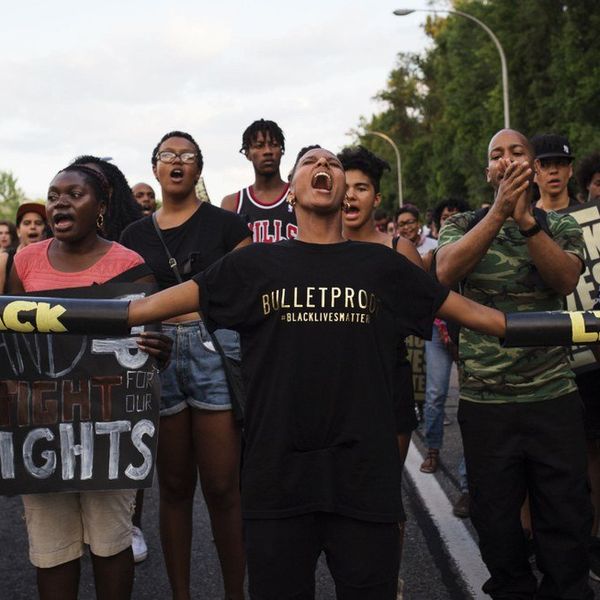They say ignorance is bliss, but ignorance in the face of an injustice that condones the killing of innocent individuals is unacceptable. In 2016 alone, 139 black people have been killed at the hands of police in the United States.
These deaths are not isolated incidents. These deaths bring light to the larger issue of institutionalized racism that exists in our justice system, and warrant action by all America. “This is not just a black issue. This is an American issue that we should all care about,” President Obama said last Thursday.
Following the President’s words, people are creating environments of support and hope for those wronged in the wake of tragedy. Since the murder of Trayvon Martin in 2013, the Black Lives Matter Movement has sought to do its part in bringing awareness to the unjust killing of innocent black lives and protesting police brutality. Here are a few misconceptions regarding the purpose and goals of the BLM movement.
The movement is anti-police.
Police officers are servants to the community; they are people just like everyone else who work to support their family and want to come home safe every day. The BLM movement strives to create a world in which police officers are not a threat to people of color, but are a supportive force that people can trust. It is the responsibility of the police to rebuild trust with communities, so that black people shouldn’t have to be overly cautious with their words when being hassled or threatened. The movement argues that questioning a charge or reason for arrest does not indicate disrespect -- black people should be allowed safe communication with an officer for the purpose of being well-informed of their situation. The police must stop instilling fear in the people whom they monitor, and instead foster collaboration with civilians. Addressing the recent shootings of Alton Sterling and Philando Castile, The Daily Show host Trevor Noah put it best: “You can be pro-cop and pro-black -- which is what we should all be.”
The movement disregards black-on-black crime.
The BLM movement recognizes the crime problem predominantly black communities face, the problem that draws people to attack blacks for standing against police brutality. While the crime problem exists, the movement does not attribute its presence to black pathology. Black people are not more prone to crime than other groups, nor are they more violent than other groups.
The movement is anti-white.
Many people seem to think that to say, “black lives matter,” is to neglect the fact that all lives matter. But are white people currently in a state of oppression due to their race? Do white people have to fear that their words or simple actions may cause them to be killed? We know that all lives matter -- they have always mattered, but at this point in time, black lives are being threatened and thus need our unconditional support. Believing that if white lives matter, black lives cannot, is the very ideology that white supremacists value. The BLM movement advocates not for one race over another, but for the inclusion of all races in situations such as the achievement gap, the wealth gap, and housing inequality, among other factors.
These myths stem from a feeling many possess: to be for one thing is to be against another. The Black Lives Matter Movement stresses the concept of connectedness. As Dr. Martin Luther King Jr. said, “All life is interrelated. Whatever affects one destiny, affects all indirectly.”
At the end of the day, the people around us are all we have. Together we must make our voices heard for the 139 black lives lost this past year, and all lives lost in previous years. No matter if you are directly affected or not affected at all by these injustices, it is time we stand with, not against, our brothers and sisters.





















